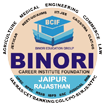Description
The SSC JE (Staff Selection Commission Junior Engineer) exam is one of the most sought-after opportunities for engineering graduates and diploma holders to secure a position in various government departments across India. Conducted by the Staff Selection Commission (SSC), this exam is a gateway for aspiring engineers to work in prestigious government organizations such as the Public Works Department (PWD), Central Public Works Department (CPWD), Ministry of Defence, Military Engineering Services (MES), and other central and state government ministries.
This article provides a detailed overview of the SSC JE Exam, including eligibility criteria, exam pattern, syllabus, preparation strategies, and career prospects for successful candidates.
Key Highlights of the SSC JE Exam
- Conducting Authority: Staff Selection Commission (SSC)
- Post Name: Junior Engineer (JE)
- Departments Hiring: Ministry of Defence, CPWD, MES, BRO (Border Roads Organisation), and other central government departments.
- Mode of Examination: Computer-Based Test (CBT) for Paper I and Descriptive Paper for Paper II
- Eligibility: Engineering degree or diploma in Civil, Mechanical, Electrical, or Quantity Surveying and Contract.
- Purpose: Recruitment of Junior Engineers in various government departments.
Roles and Responsibilities of a Junior Engineer
The responsibilities of a Junior Engineer can vary depending on the department and the engineering discipline. Here are some key duties:
- Project Supervision: Overseeing construction, maintenance, and engineering projects. Ensuring work is completed according to specifications and deadlines.
- Site Inspection: Inspecting work sites and ensuring that work is progressing as per the project plan, quality standards, and safety norms.
- Design and Estimation: Helping in designing, estimating project costs, and material requirements for civil and mechanical infrastructure projects.
- Technical Support: Providing technical expertise and resolving issues related to engineering systems, equipment, and operations.
- Documentation: Maintaining technical documentation, reports, and blueprints for projects and providing regular updates to senior engineers.
Eligibility Criteria
To apply for the SSC JE Exam, candidates must meet the following eligibility criteria:
- Educational Qualification:
-
- Degree or Diploma in Engineering in Civil, Mechanical, Electrical, or Quantity Surveying and Contract from a recognized university or institution.
- A Degree in engineering is required for certain departments like CPWD, while a Diploma may suffice for others like MES.
- Age Limit:
-
- Minimum Age: 18 years
- Maximum Age: 32 years (Age relaxation is provided for reserved categories like SC/ST/OBC/PwD candidates as per government rules).
- Nationality:
-
- Candidates must be a citizen of India, or a subject of Nepal/Bhutan, or a Tibetan refugee, or a person of Indian origin who has migrated from specified countries with the intention of settling in India.
Exam Pattern
The SSC JE Exam consists of two papers:
Paper I: Computer-Based Examination (CBT)
- Duration: 2 hours
- Mode: Online
- Total Marks: 200
- Questions: 200 Objective Multiple Choice Questions
- Subjects:
- General Intelligence and Reasoning (50 Marks)
- General Awareness (50 Marks)
- Engineering Discipline-Specific Questions (100 Marks)
Paper II: Descriptive Paper
- Duration: 2 hours
- Mode: Pen-and-Paper based
- Total Marks: 300
- Subject: Conventional (descriptive) type paper on the respective engineering discipline (Civil, Mechanical, Electrical)
Career Growth and Opportunities
Once you secure a position as a Junior Engineer through the SSC JE Exam, there are significant career growth opportunities:
- Junior Engineer (JE) → Assistant Engineer (AE) → Executive Engineer (EE) → Superintending Engineer (SE)
- Specializations: Depending on the department and your discipline, you may specialize in areas like project management, infrastructure development, or maintenance.
The SSC JE Exam is an excellent opportunity for engineering graduates to work in prestigious government departments and contribute to national development.


Reviews
There are no reviews yet.